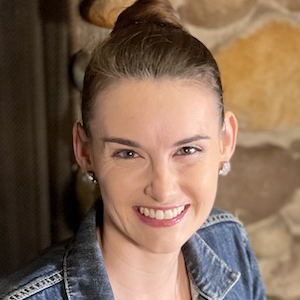Ah, the age-old question, “How was school today?”
And the dreaded answer, “Fine.”
As school is starting up again, so is this “conversation” in cars and homes across the country, frustrating parents to no end.
I think the reason this exchange feels so frustrating, at least in part, is that parents know intuitively that connecting with their kids through substantive discussions about their days is important for their well-being.
Recent research has shown that in fact, intimate emotional connections between parents and children enhance academic achievement and self-esteem.
The problem is, how do you maintain or build an intimate emotional connection with a teen or pre-teen who won’t give you more than a one-word answer?
The solution is to start slow, be consistent, and ask better questions.
How to start
Can starting new types of conversations with your teen or pre-teen be awkward? Absolutely.
Might they look at you like you have two heads when you ask them a new type of question about their day? Yes — making you feel old and weird is essentially their job at this point.
But you’ve proven that you can do hard things over the course of your life. So take a deep breath, and do it. Then do it again the next day. And again. Keep showing up. Even if the impact is invisible for a while, I promise you it’s there.
What to say
Start incorporating reflection questions into your conversations with your child during a time that you see them regularly — the ride home from school, the dinner table, as you say goodnight.
Here are the questions I recommend asking daily:
- What went well for you today?
- What was hard?
- What do you wish could have been different about today?
- What do you want to do differently tomorrow?
If you don’t have much time, or their attention is short, just ask one question. Each question is powerful in and of itself. These questions don’t demand a long conversation to have their intended impact.
Make it a real conversation
Listen to your child’s response, and affirm that you’ve heard what they said. Don’t try to solve any problems you hear, and try not to judge anything they say as positive or negative. Just let them know that you’ve heard them.
What went well for you today?
What was hard?
What do you wish could have been different about today?
What do you want to do differently tomorrow?
Then answer the question yourself. Even if it doesn’t seem like your child is listening, they notice everything that you do. Providing your own responses will provide a model of reflection skills that your child can build on while they’re learning these skills themselves. And, it will help show kids who tend to interpret questions as interrogation that you are genuinely trying to connect. Just make sure that the answers you’re sharing as the parent respect the boundaries of your relationship with your child.
Added benefits
As they start to expect to be asked to reflect in these ways, they’ll be more prepared to answer your questions, and they’ll be able to give you more information about what they’re thinking and how they’re feeling.
What you’re doing overtime is not only building your relationship with your child, you’re supporting their reflection skills. Reflection skills are key for solving problems. And the more kids practice reflection, the better they get at it.
Reflecting as they answer your questions will help your kiddo to review the effectiveness of what they’re doing each day, rather than just carry on doing things as they’ve always done them. It is about questioning, in a positive way, what they’re doing and why, and then deciding whether there is a better, or more efficient, way of doing it in the future.
Like learning anything else, learning reflection skills takes commitment, consistent practice, and good models to emulate. And like anything else, it can be intimidating in the beginning. It is okay to make mistakes — for both you and your child.
Keep at it and you’ll see your child, yourself, and your relationship grow.

Founder & Principal Academic Coach
Laura Fragomeni, Ed.M.
Laura Fragomeni is a Harvard-educated master academic coach and the founder of School Without Suffering, an academic coaching practice specializing in helping struggling students around the world be happy and successful.

